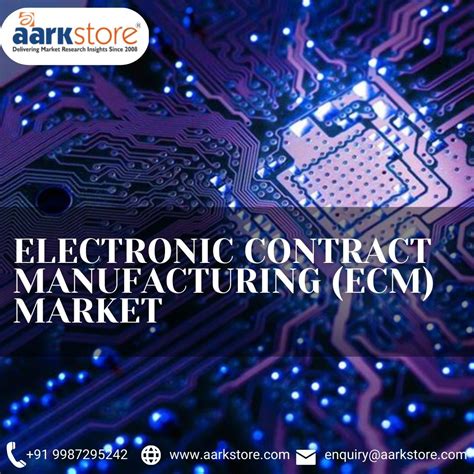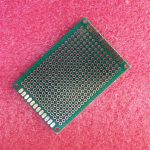Introduction to Electronic Contract Manufacturing
Electronic Contract Manufacturing (ECM) is a business model where a company, known as the contract manufacturer, produces electronic components or products for another company, known as the original equipment manufacturer (OEM). The OEM outsources the manufacturing process to the ECM provider, allowing them to focus on core competencies such as product design, marketing, and sales.
ECM has become increasingly popular in recent years due to the complexity of modern electronic products and the need for specialized manufacturing expertise. By outsourcing production to an ECM provider, OEMs can reduce costs, improve quality, and accelerate time-to-market.
Benefits of Electronic Contract Manufacturing
There are several key benefits to using an ECM provider:
-
Cost Savings: ECM providers can often manufacture products at a lower cost than OEMs due to economies of scale, specialized equipment, and access to low-cost labor markets.
-
Quality Improvement: ECM providers have expertise in manufacturing processes and quality control, ensuring that products meet or exceed the OEM’s specifications.
-
Faster Time-to-Market: By outsourcing manufacturing, OEMs can bring products to market faster, as they can focus on product development while the ECM provider handles production.
-
Flexibility: ECM providers can quickly adapt to changes in demand, allowing OEMs to respond to market fluctuations without investing in additional manufacturing capacity.
-
Access to Specialized Expertise: ECM providers often have expertise in specific manufacturing processes or technologies, such as surface mount technology (SMT) or printed circuit board (PCB) assembly.
Types of Electronic Contract Manufacturing Services
ECM providers offer a range of services, depending on the needs of the OEM. Some common types of ECM services include:
-
PCB Assembly: The ECM provider assembles PCBs using surface mount technology (SMT) or through-hole technology (THT).
-
Cable and Wire Harness Assembly: The ECM provider assembles custom cable and wire harnesses for use in electronic products.
-
Box Build Assembly: The ECM provider assembles complete electronic products, including PCBs, cables, and enclosures.
-
Testing and Quality Control: The ECM provider performs functional testing, in-circuit testing, and other quality control measures to ensure that products meet the OEM’s specifications.
-
Supply Chain Management: The ECM provider manages the supply chain for the OEM, sourcing components and materials from suppliers and ensuring that production schedules are met.

Choosing an Electronic Contract Manufacturer
When choosing an ECM provider, there are several factors to consider:
-
Expertise: Look for an ECM provider with expertise in the specific manufacturing processes and technologies required for your product.
-
Quality: Ensure that the ECM provider has robust quality control processes in place and can meet your quality standards.
-
Capacity: Verify that the ECM provider has sufficient manufacturing capacity to meet your production needs.
-
Location: Consider the location of the ECM provider, as this can impact logistics, shipping costs, and lead times.
-
Communication: Choose an ECM provider with clear communication channels and a proven track record of collaboration with OEMs.
The Electronic Contract Manufacturing Process
The ECM process typically involves the following steps:
-
Design for Manufacturability (DFM): The OEM works with the ECM provider to ensure that the product design is optimized for manufacturing.
-
Prototyping: The ECM provider produces prototypes of the product for testing and validation.
-
Component Sourcing: The ECM provider sources components and materials from suppliers, often leveraging their buying power to secure favorable pricing.
-
Manufacturing: The ECM provider manufactures the product using the agreed-upon processes and technologies.
-
Testing and Quality Control: The ECM provider performs functional testing, in-circuit testing, and other quality control measures to ensure that the product meets the OEM’s specifications.
-
Packaging and Shipping: The ECM provider packages the finished products and ships them to the OEM or directly to the end customer.
Trends in Electronic Contract Manufacturing
Several trends are shaping the ECM industry:
-
Miniaturization: As electronic products become smaller and more complex, ECM providers are investing in advanced manufacturing technologies to produce miniaturized components and assemblies.
-
Internet of Things (IoT): The growth of the IoT is driving demand for ECM services, as OEMs seek to bring connected devices to market quickly and cost-effectively.
-
Reshoring: Some OEMs are moving manufacturing back to their home countries, driven by concerns about supply chain disruptions, intellectual property protection, and rising labor costs in traditional offshore manufacturing locations.
-
Automation: ECM providers are investing in automation technologies, such as robotics and machine vision, to improve efficiency, quality, and consistency in the manufacturing process.
-
Sustainable Manufacturing: There is growing pressure on ECM providers to adopt sustainable manufacturing practices, such as using eco-friendly materials, reducing waste, and minimizing energy consumption.
Frequently Asked Questions (FAQ)
-
What is the difference between an OEM and an ECM provider?
An OEM is a company that designs and sells products under its own brand name, while an ECM provider is a company that manufactures products on behalf of the OEM. -
What are the advantages of using an ECM provider?
The advantages of using an ECM provider include cost savings, quality improvement, faster time-to-market, flexibility, and access to specialized expertise. -
How do I choose the right ECM provider for my business?
When choosing an ECM provider, consider factors such as expertise, quality, capacity, location, and communication. Look for a provider with a proven track record of success in your industry. -
What is the typical process for working with an ECM provider?
The typical process for working with an ECM provider involves design for manufacturability, prototyping, component sourcing, manufacturing, testing and quality control, and packaging and shipping. -
What are some of the current trends in the ECM industry?
Current trends in the ECM industry include miniaturization, growth of the Internet of Things, reshoring, automation, and sustainable manufacturing practices.
Conclusion
Electronic Contract Manufacturing is a critical component of the modern electronics industry, enabling OEMs to bring complex products to market quickly and cost-effectively. By outsourcing manufacturing to specialized ECM providers, OEMs can focus on their core competencies while benefiting from the expertise, scale, and flexibility of their manufacturing partners.
As the electronics industry continues to evolve, ECM providers will play an increasingly important role in driving innovation, efficiency, and sustainability in the manufacturing process. By staying at the forefront of industry trends and investing in advanced technologies and processes, ECM providers can help OEMs stay competitive in a rapidly changing market.






Leave a Reply